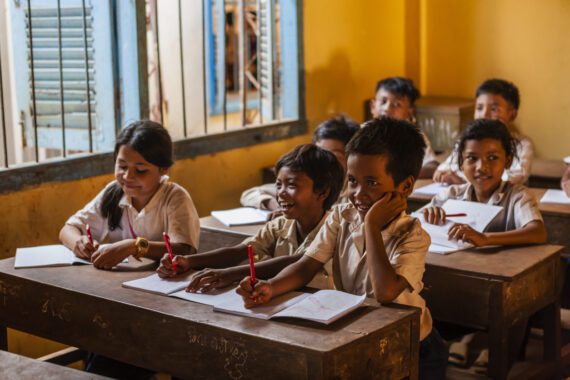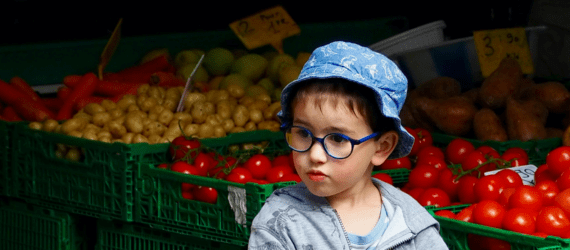By Laura Joseph
Editor’s Note: This is one in a series of essays based on Laura’s conversations with people who work with communities to help improve nutrition. This essay includes the voices of people from Brazil and the United States.
In Bread for the World’s advocacy to end hunger, we emphasize not only the importance of identifying and resolving the root causes of hunger and malnutrition, but the immediate and essential task of simply finding ways to get food, or money to buy food, into the hands of people who need it.
When Thiana, born and raised in Brazil, considers how to respond to hunger in her community, she remembers her childhood: “The government and businesses helped people by providing a ‘monthly basic box’ to low-income families. My grandma received these for a while. In the beginning of the month, the government would send her a big box with rice, beans, oil, sugar, flour, pasta, tomato sauce, and coffee. If I am not mistaken it even included toothpaste and soap. That really helps the families. She only had to buy the meat and vegetables.”
Dreaming of further ways to improve the situation of people struggling with food insecurity in Brazil, she says, “If I could, I would build community gardens. Then they would only have to buy the meat.”
A related nutrition program in Brazil, Bolsa Familia, sends a cash payment to more than 13 million of the country’s lowest-income households on only one condition: the children in the family must attend school regularly. The money is sent directly to families through the mail, bypassing possible avenues of corruption. The program is financed by the World Bank.
Studies show that the money is being spent first on food, and then on school supplies, clothes, and shoes. The poorest 40 percent of Brazil’s population receives 94 percent of program funds. Since Bolsa Familia began more than a decade ago, nearly 20 countries have established adaptations of this successful model, including Chile, Mexico, Indonesia, and Morocco.
Even here in the United States, programs linked to education are among the most effective efforts to get food to people who need it. One of these is summer meals for children who receive free and reduced-price breakfast and lunch during the school year.
As recently as 2018, the federal government required kids who participated in summer meal programs to travel to schools or other designated group sites and eat their meals there. Lack of transportation, especially in more rural districts, kept many children from accessing these much-needed meals.
Jeremy Everett, director of the Baylor Collaborative on Hunger and Poverty and Bread for the World’s board chair, worked to come up with a solution. In 2019, Meals-to-You was tested in 20 largely rural counties in Texas where group meal sites are not practical. The idea of sending food boxes directly to children was so successful that during the COVID-19 pandemic, the Baylor Collaborative was asked to help scale up the effort to most of the country, including Puerto Rico. Children who received free meals before the pandemic had food delivered to them throughout the pandemic.
Bread members advocated successfully for the enactment of the Consolidated Appropriations Act of 2023, which widened the scope of free meals for schoolchildren during the summer months. Kids nationwide may now have food boxes delivered.
Universal school meals—providing free school meals to all students, just as public school itself is free—would have an even wider impact on hunger. It is important to do more to prevent hunger from impacting the education of each individual child. Making nutritious meals easily accessible to all and removing any stigma attached to accepting school meals would help accomplish this.
Laura Joseph earned her master’s degree in Theology, Ecology, and Food Justice at Truett Seminary of Baylor University. She was a nutrition fellow at Bread for the World in 2023.



